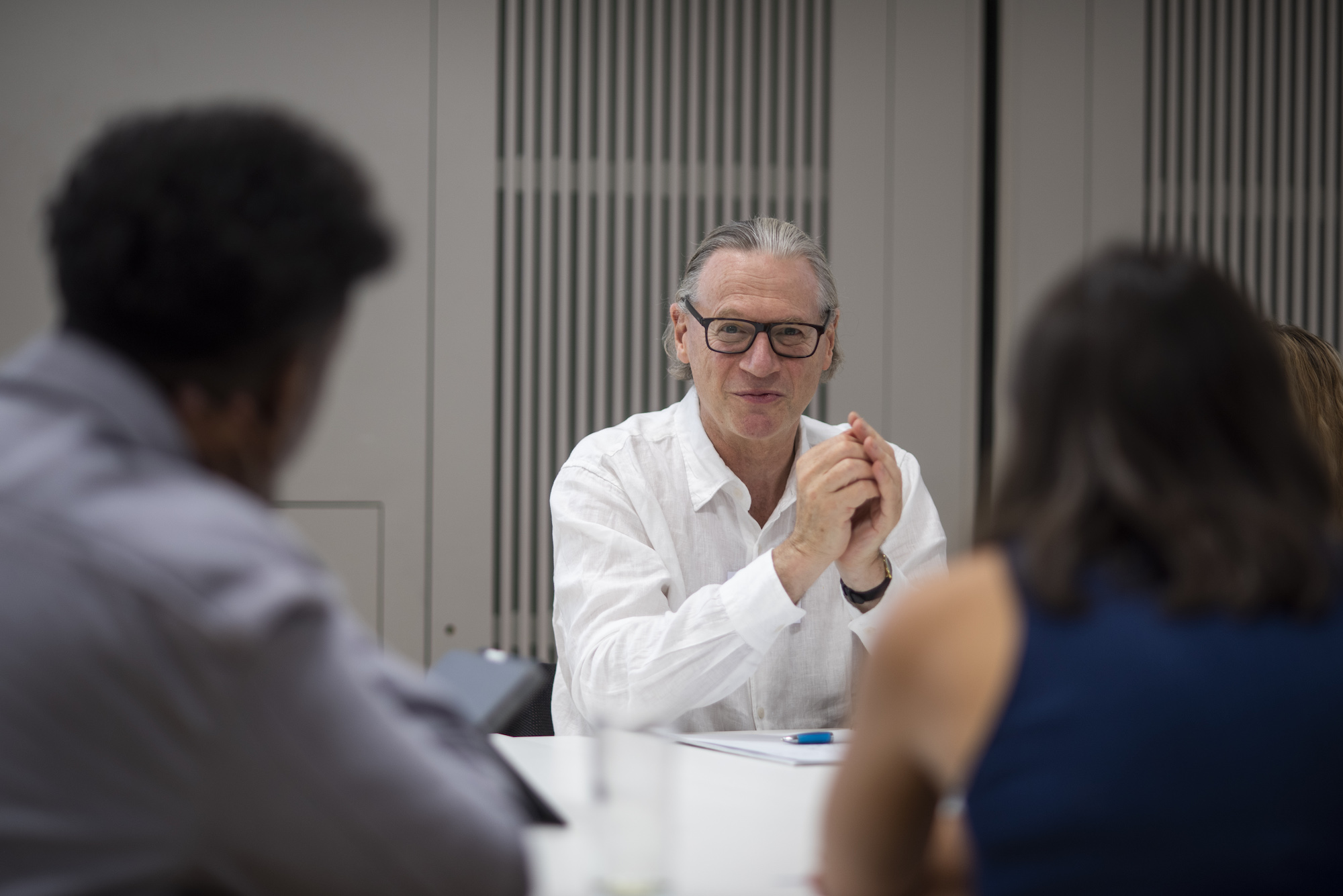Shaping the future
Professor Jo Wolff, the inaugural Alfred Landecker Professor of Values and Public Policy, first joined the School in 2016. Almost a decade later, before his departure next year, he reflects on his evolving research and why we teach students to critically evaluate the moral commitments which inform public policy.

As Jo prepares to step down from his role, we asked him why it is so important to teach philosophy to students studying public policy.
"People think of decision-making in public policy as a technical skill. Many public policy schools concentrate on training people how to do cost-benefit analysis, as if this is a type of value-free approach, but they are mistaken; at the bottom of every decision in public policy there has already been a decision about which values we are counting and those we are not. As someone in public policy, you have a choice either to accept the values that are being used, or to engage in debate about whether they are the right ones, and what the outcomes will be of using those rather than others."
So the purpose of teaching philosophy to public policy students for me is first of all to make people aware that these are value questions, and secondly to help people develop a better vocabulary for reflecting upon and discussing them.
In his career Jo initially pursued traditional political philosophy, delving into topics like distributive justice, political obligation, and exploitation. But a pivotal shift occurred when he was asked to participate in a government committee evaluating UK gambling legislation, prompting him to adapt his approach to better address policy concerns. Jo’s philosophy engages with real-world problems and issues, particularly those related to social justice, inequality, and public policy.
"I’ve always been interested in social justice and in what a just society would look like, and in particular thinking that for no good reason life works out badly for some people. I realised there was no point addressing that question without being much more attuned to the ways in which why life goes badly for some people and understanding the unnoticed disadvantages, the many dimensions and patterns in which advantage and disadvantage exist."
Over the course of his career Jo has authored numerous books and papers and his new book City of Equals, co-authored with Avner de Shalit, explores how the way in which a city treats its citizens lays the foundations for equality.
"From our interviews we realised that city dwellers want to live in something they regard as like a village, where they know their neighbours, are recognised on the streets, and can walk to local shops but are also close both to a lively city centre and peaceful parks or countryside.
"By making the community choice the easy choice, you offer to everyone a secure sense of belonging; each person can think ‘I’m proud of my city, and my city is proud of people like me’."
In 2023 Jo was appointed as a Fellow of the British Academy and this year he was honoured to be appointed as President of The Royal Institute of Philosophy, following in the footsteps of luminaries such as Lord Balfour and Baroness O’Neill.
This role recognises those who engage the public with their work. What piece of wisdom or advice would he pass on to his students at the School?
Think about why you chose to do what you’re doing... why are you in this job? You can never be sure what the outcome of anything is going to be, but think about what is most likely to have lasting value.
Jo’s teaching and mentorship has shaped the intellectual trajectories of so many of our students who have gone on to influence public policy for the betterment of their societies. His writings on poverty, inequality, and the moral obligations of the state will continue to shape debates and policies aimed at creating more just and equitable societies. The School is a richer place for his contributions.
The Alfred Landecker Foundation: A partnership to champion the rights of vulnerable people
Now more than ever it is important to articulate and reaffirm the values underlying open, liberal, democracy. The School values its partnership with the Alfred Landecker Foundation which draws on philosophy, history, politics, sociology, cultural studies, legal theory, and human rights theory.
In 2020 Jo was appointed the Alfred Landecker Professor of Values and Public Policy, leading a new academic programme that investigates the persecution and protection of minorities in the UK and Europe, exploring in particular the values and institutions that underpin democratic society.
A recent School report on strengthening democracy by reducing threats to women in politics around the world was generously funded by the Alfred Landecker Foundation, and we are grateful to be able to continue this work for a further year.
Each year the School organises the Alfred Landecker Holocaust Memorial Event in partnership with the Alfred Landecker Foundation to mark United Nations Holocaust Remembrance Day. This year the School hosted a screening and discussion about The Zone of Interest, an award-winning 2023 historical drama film written and directed by Jonathan Glazer, loosely based on the 2014 novel of the same name by Martin Amis. The film centres on Auschwitz commandant Rudolf Höss and his wife as they strive to build a dream life next to the concentration camp.


